History of Soul Music Part IV
The Motown Story (1964-1980)
Barry Gordy was notorious for using creative bookeeping to shortchange his less successful artists out of royalty payments. But he also lavished his superstars like Stevie Wonder, Marvin Gaye, Smokey Robinson, Diana Ross, & Michael Jackson with generous royalty cuts on their album sales. Gordy understood that bigger stars have better lawyers & financial consultants who regularly demanded audits of royalty payments, so he didn't push his luck. Barry Gordy's 1st tier of superstars were the only Motown employees that didn't complain about Gordy's management style because they benefited from his special treatment and lavish royalty agreements.
The first signs of a rebellion began when Gordy's most talented songwriting team walked off and filed a lawsuit against Gordy for his unsavory business practices. Motown's premier songwriting team Lamont Dozier and brothers Brian and Eddie Holland (known in the trade as Holland–Dozier–Holland) left Motown in 1967 accusing Gordy of taking songwriting credits for songs they wrote and shorting them on royalty payments for the songs they got credit for writing. The natives were getting restless.
The Norman Whitfield Rebellion
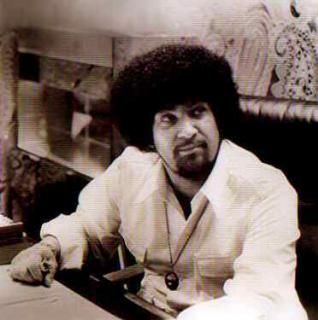 Norman Whitfield- Brilliant producer who crafted the trademark Motown sound
Norman Whitfield- Brilliant producer who crafted the trademark Motown sound
Norman Whitfield began hanging around the Motown offices as a 19 year old kid. He wasn't on the payroll but he become the office mascot who'd run errands and fetch coffee for tips. Gordy noticed the ambitious kid and hired him to fill an entry level position in the quality control department. Marvin Gaye discovered Whitfield's songwriting talents and they collaborated on a few songs on Gaye's early albums.
Smokey Robinson, who was the Temptations producer in the early 60's noticed Whitfield's skills on the soundboard and trained him as a sound engineer. When touring commitments kept Robinson from completing the production of the Temptations' 1966 album,
Gettin' Ready, Smokey asked Whitfield to produce the six remaining songs on the album. Those six cuts sounded better than any of the songs Robinson ever produced for the Temptations and one of the songs was
Ain't Too Proud to Beg which became the Temptations first million selling single.
Robinson and Whitfield developed an ingenious method of quality control for Motown's single releases. In early Sixties, a listener's first encounter with a new single release was usually hearing the song on a car radio. Whitfield & Robinson would finish the studio mix of a single release and tweak the mix by playing it through a standard issue speaker for a car radio. Every Motown single was produced for optimal sound quality on a cheap $5 dollar car radio speaker.
In the fall of 1968, Whitfield walked into a Temptations recording session and made the announcement that he was going to "shake things up." Whitfield proceeded to lay down three tracks in rapid sucession:
Cloud Nine,
Runaway Child Running Wild, a fresh take on an early Marvin Gaye hit,
I Heard It Through the Grapevine. The outcome was a radical departure from the Barry Gordy classic Motown factory production sound.
Earlier that year, Sly & the Family Stone had their first top 10 song
Dance To the Music. The churning funk sound and the psychedelic guitar of the Family Stone's first single caught the ear of Norman Whitfield, who thought it was high time for Motown to modernize their sound.
Whitfield became an admirer and friend of Sly Stone. Sly began his career as a San Francisco soul music deejay. He had a degree in music theory and composition and played trumpet, guitar, and keyboards in several bands in the early garage/psychedelic era. This lead to a job as a producer at Autumn Records where Sly produced the earliest albums by folk rockers, the Beau Brummels and the San Francisco based psychedelic garage band the Mojo Men. Sly Stone also produced the debut release of the Haight Ashbury hippie band, the Great Society lead by Grace Slick, who later became an icon of the psychedelic generation as vocalist for the Jefferson Airplane. Sly was impressed by the creativity of the earliest psychedelic bands and wanted to created a band that was a fusion of psychedelic music with funky drum & bass sound of the James Brown band.
In early 1967, Sly Stone formed his own group, the Family Stone. The Family Stone was influenced as much by the psychedelic music of the Haight Ashbury hippie culture, as contemporary soul music. The All Music guide wrote,"Sly & the Family Stone treated soul as a psychedelic sun splash, filled with bright melodies, kaleidoscopic arrangements, inextricably intertwined interplay, and deft, fast rhythms.
Whitfield's vision was to refurbish the Motown production methodology to sound more like Sly Stone and less like Barry Gordy's trademark uptown soul music sound. Gordy was opposed to any music that made social commentary at Motown and was no fan of psychedelic music but he reluctantly approved Whitfield's proposal for the Tempation's
Cloud Nine album, fearing that his best producer would walk away to another label. The end result was a radical leap into the future for the Motown sound. Motown's legendary session guitarist Dennis Coffey's use of distortion, the wah-wah peddle and an Echoplex tape delay was soon imitated by most psychedelic guitarists including Jimi Hendrix.
With Whitfield at the soundboard, the churning bass and funk rhythms of the Motown house band The Funk Brothers became the template for '70s funk sound. Even though Gordy disliked Whitfield's psychedelic freakout, he couldn't complain because
Cloud Nine sold a lot of units and won a Grammy for best album by an R&B group. As much as he disapproved of Whitfield's psychedelic soul, his stable of superstar performers were selling fewer and fewer units and by 1968 Gordy knew the classic Motown sound was in dire need of a face lift.
The Temptations felt a bit out of the loop the debate over the psychedelic controversy, but it was hard for group members to protest Whitfield's radical reinvention of their musical direction, given the critical and commercial success of
Cloud Nine. Temptation lead singer Eddie Kendricks was alienated by Whitfield's makeover and left the group shortly after the sessions for
Psychedelic Shack, the 1970 Whitfield produced follow up to
Cloud Nine. The long time lead singer of the Temptations David Ruffin had departed to pursue a solo career in early 1968, just prior to the
Cloud Nine session, and now Eddie Kendricks was leaving over creative differences with Whitfield. The Temptations had a few minor hits in the Seventies but the departure of Kendricks was the beginning of the end for the Temptations.
The Marvin Gaye Rebellion
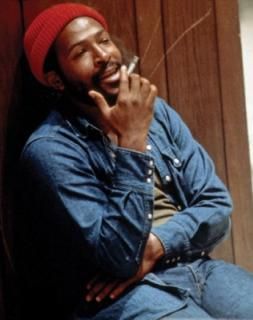
The Temptation's controversy was a sideshow for Barry Gordy. Gordy had bigger fish to fry at the time. Marvin Gaye faced his first career crisis at age 30 and began a protracted fight with Gordy to release a collection of songs that touched on taboo topics like urban decay, environmental woes, the Vietnam War, police brutality, unemployment, and poverty. When Gordy refused to underwrite the production of his proposed album "What's Going On" Gaye retaliated by refusing to record or tour. Because of his loss of royalty and touring revenues, Marvin Gaye was close to personal bankruptcy and spent his most of his idle time using drugs and chasing women.
Gordy vetoed the songs in Gaye's
What's Going On album project as noncommercial but he also worried that all this rabble rousing by Motown artists would scare away the lucrative white crossover audience he worked so hard to nurture. Gaye issued an ultimatum to Gordy: He wouldn't record any more new material until Gordy released
What's Going On. Gaye was engaged in a dangerous stand-off with Gordy that could end his career as a performer. But Gaye appeared to be ready and willing to throw away his career to the cause of artistic integrity. Gordy began to feel pressure from both music industry insiders and Marvin Gaye's fans to resolve the matter by releasing the controversial album.
Barry Gordy finally relented and released
What's Going On album in May of 1971, Marvin Gaye proved Gordy to be wrong, the album was a tremendous commercial and critcal success and hailed as the greatest musical masterpiece of Gaye's long career.
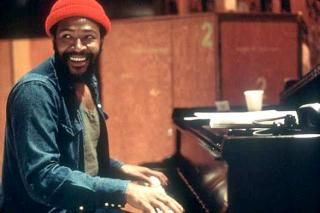 33 year old Marvin Gaye at the peak of his creative powers, during a 1972 recording session for Let's Get It On.
33 year old Marvin Gaye at the peak of his creative powers, during a 1972 recording session for Let's Get It On.
During his 23 year recording career at Motown, Marvin Gaye made and lost 3 different multi-million dollar fortunes. Gaye had a remarkable talent for reinventing himself every time he was written off by his critics as a "has-been." Marvin was an electrifying live performer and his female fans often swooned and keeled over into arms of security guards who were stationed at the apron of the stage to cart off the fainting girls to a medical station. Now some 50 years after his recording first single and 30 years after his tragic death, Marvin Gaye has supplanted Motown's golden boy, Stevie Wonder as the most widely admired Motown artist.
The Stevie Wonder Rebellion
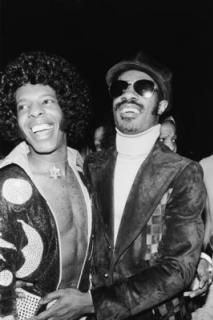 Stevie and Sly pose together during 1975 tour
Stevie and Sly pose together during 1975 tour
Barry Gordy's authority was also being questioned by Motown's most consistent hit maker, Stevie Wonder. The label's golden boy who signed on at age 11 in 1961 was now a young adult in his early 20s. Wonder's spiritual transformation began when he ditched the designer suits mandated as proper stage-wear by Gordy. Instead, Wonder began wearing colorful African dashiki robes with tribal jewelry. After Wonder braided his hair in the style of a Massai tribal warrior, Wonder's exotic corn row braids became the latest hairdo fad among black youth. To Gordy's distress, Wonder was also becoming active in the Civil Rights movement and talking about black consciousness. Just as the Norman Whitfield/
Cloud Nine & Marvin Gaye/
What's Going On controversies were settled, Barry Gordy began to get nervous about Stevie Wonder's black pride freakout.
To make matters worse for Gordy, Stevie Wonder was touring with a pair non-Motown artists who were leaders of the Seventies musical insurgency. Sly Stone had developed an "uppity" attitude and his critics thought some of his songs had menacing anti-white messages. Wonder's other touring partner was Rastafarian rebel, Bob Marley who was also mislabeled by many American critics as as a militant proponent of black power. But Wonder's association with the rebel faction of black music made him a credible voice for change and won him an even larger audience. Oddly enough, Wonder continued to have spectacular crossover sales success.
In 1972 Wonder successfully fought Gordy to have the song
Big Brother included in his album
Talking Book.
Big Brother was a harsh blanket indictment of government for surveillance of black citizens and illegal searches of black homes by the local police and the F.B.I. The song goes on to accuse politicians of only visiting the black community "around election time" and the final verse Wonder accuses the big brother government of killing "all our leaders." To Barry Gordy's ears, Stevie Wonder was beginning to sound like Malcom X.
The following year Gordy attempted to waylay the release of Wonder's album
Innervisions which covered many of the same controversial social topics covered by Marvin Gaye on
What's Going On. Gordy relented with less of a fight this time around. The 23 year old Stevie Wonder was world's biggest Soul music star and the future of the Motown label... Gordy couldn't afford to lose his rainmaking artist to a rival label.
It was a smart business decision by Barry Gordon. As '70s era unfolded the top tier Motown performers like Mary Wells, the Supremes, the Four Tops & the Temptations stopped turning out the hits, and only two first generation Motown artists, Stevie Wonder and Marvin Gaye, kept selling enough records to keep Motown financially solvent.
But Barry Gordy's luck was beginning to run out. His decision to relocate Motown to Los Angeles was the first in a series of management mistakes that would place the Motown label in financial peril over the next decade.
Gordy Moves Motown Out of the Motor City
In 1972, Barry Gordy abruptly closed the funky Motown "Hitsville USA" Detroit headquarters to and moved the entire Motown operation into posh a Los Angeles office building. Gordy was burning all of his bridges and his relocation of Motown Records to Los Angeles obliterated Motown's historic past as a regional soul music label with strong ties to Detroit's black community.
Gordy's decision to move Motown out of Detroit had dire economic consequences for a city that was already reeling from job losses in the automobile manufacturing industry. Neighborhoods in the black community of Detroit were beginning to look like ghost towns at the end of the gold rush era. During the next two decades the population of Detroit dropped from 1,800,000 residents to 950,000. The days of Motor City and Motown prosperity were over for the City of Detroit.
Motown's move to L.A. transformed Motown into just another West Coast record label on the make. And the aspiring artists who flocked to the Los Angeles music scene in the early '70s were overly ambitious musical neophytes who measured success by big money and big bling. The experimental mood of the Sixties L.A. music scene was ancient history and by the early Seventies every musician, producer and record company executive was "only in it for the money" as Frank Zappa once put it. Most of the visionary artists and music producers who put Los Angeles on map as a haven for musical creativity were no longer in the game.
In the '70s, the L.A. music scene was hijacked by the corporate boardroom and bottom line oriented music executives like David Geffen and Irving Azoff installed themselves as the purveyors of good musical taste on the L.A. music scene. The music began sound like the non-offensive, middle of the road, country rock, jazz fusion and mellow soul that yuppie management types used as the soundtrack to their pathetic money grubbing lives. It was the kind of music that American psycho Patrick Bateman listened to while rolling out the plastic sheeting for his next murder victim.
The West Coast move signaled the beginning of a slow decline for Motown Records. Motown's visionary producer Norman Whitfield left the label and it was increasingly clear that Gordy was out of touch with the times. By the early 80's Motown was an over-extended and under-capitalized money pit awash in red ink, under Gordy's leadership. Facing imminent bankruptcy proceedings, Barry Gordy sold off his interest in Motown Records to MCA in 1988. The current MCA subsidiary label bearing the Motown brand is a shell of Motown's Hitsville USA glory in Sixties.
By the end of the Eighties, 75% of the all music sales in the United States were controlled four L.A. based corporate entities. When Barry Gordy sold off Motown to the MCA entertainment consortium, he also sold off Motown's rich legacy as an independent soul music powerhouse label. Motown became just another spread-sheet property in MCA's growing portfolio of record company acquisitions.
There will always be a controversy about Gordy's high-handed treatment of some of his recording artists, but Motown's most successful artists like Diana Ross, Smokey Robinson, Stevie Wonder and Marvin Gaye remained loyal to Gordy, possibly because of the preferential treatment he accorded them.
Barry Gordy remains an enigma, he was the first black owner of a soul music label that achieved stellar success but he also treated many of his black artists like field hands on a plantation to accomplish this success.


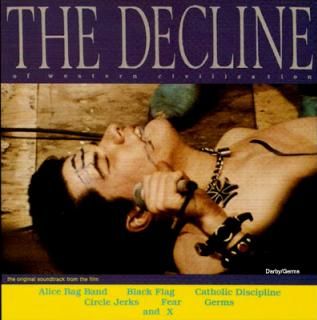
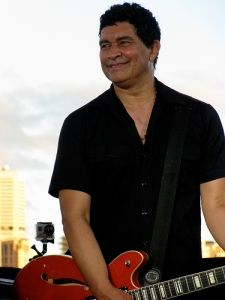

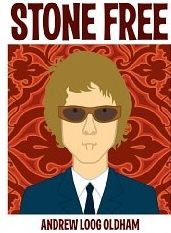
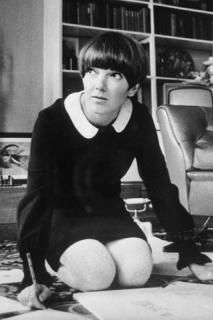

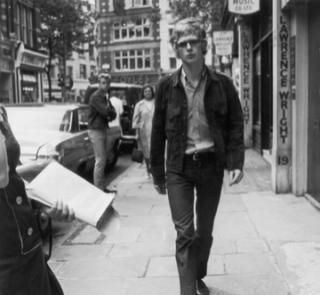
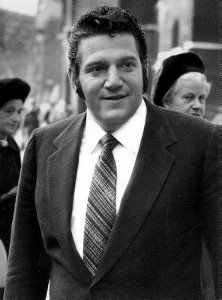


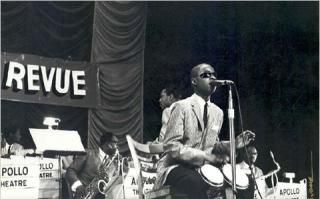
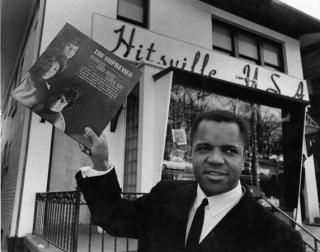




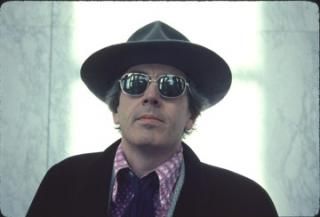

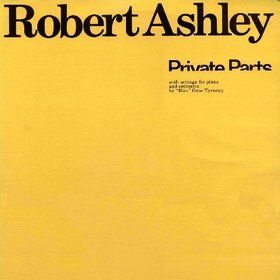
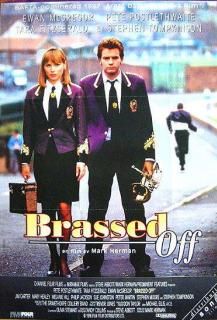
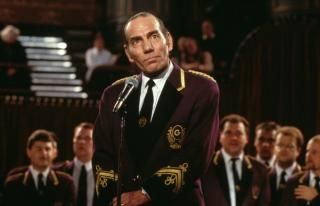
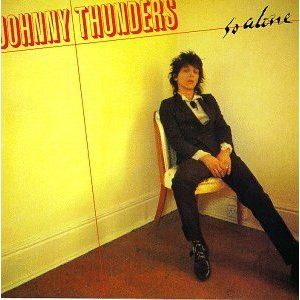
 Linear Mode
Linear Mode
